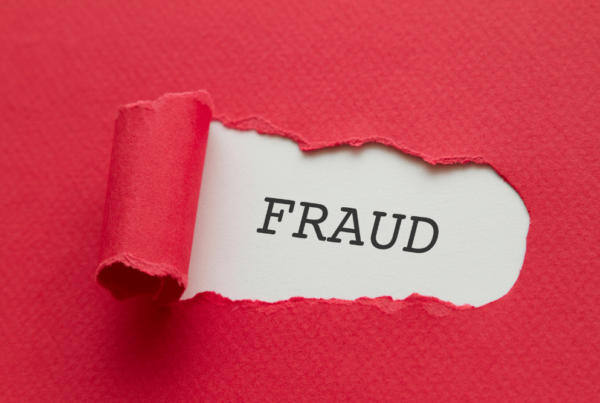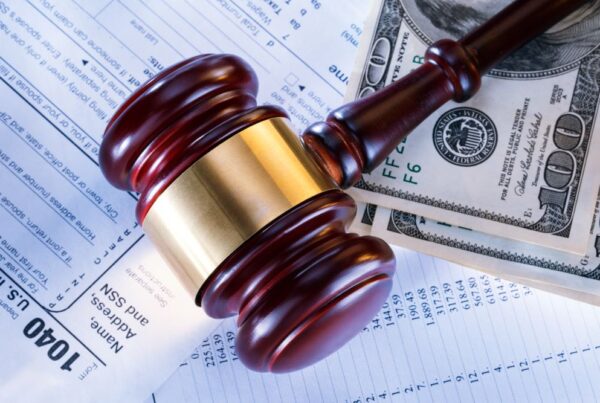WHITE COLLAR CRIMES
Federal Business & Corporate Fraud Defense Attorney
Corporate Fraud and the Federal Government’s Response
In the wake of numerous major corporate financial scandals, 2002 was justly dubbed the Year of the Scandal. Some of the most notable scandals included the toppling of Enron, the bankruptcy of WorldCom, the indictment of CEOs for pilfering Tyco and Adelphia, the banishing of Arthur Andersen from the Big Five, among others. These scandals shattered investor confidence and fueled a burgeoning call for action.
The federal government answered this call on multiple fronts. On March 27th, 2002, President George W. Bush signed the Bipartisan Campaign Reform Act (BCRA), increasing regulation of campaign financing and kicking off the federal government’s crusade to stamp out financial duplicity wherever it existed. On July 9th, President Bush issued Executive Order 13271, establishing the Corporate Fraud Task Force, with a promise to “use the full weight of the law to expose and root out corruption.” Weeks later, on July 27th, Congress enacted the Sarbanes-Oxley Act (SOX), which created new, or expanded, requirements for the boards of directors and management of every publicly traded company and public accounting firms as well as certain provisions that apply to privately held companies.
Two decades later, the Department of Justice (DOJ), the Securities and Exchange Commission (SEC) and other law enforcement and regulatory agencies continue the crusade, but the Federal Bureau of Investigation (FBI) is the agency leading the investigation of corporate fraud—one of the federal government’s highest criminal priorities. The types of corporate fraud are numerous and diverse. The FBI investigations target three broad categories of corporate fraud:
- Accounting fraud
- Insider trading and other self-dealing by corporate executives
- Obstruction of justice
What statutes criminalize acts of corporate fraud?
Under each broad category, there are multiple statutes criminalizing a variety of conduct. To convict an alleged offender, a federal prosecutor must prove the elements of a given charge beyond a reasonable doubt. Although a conviction under each statute may carry different potential penalties, various factors may mitigate (reduce) or enhance (increase) a convicted defendant’s sentence, depending on the particular facts of the alleged crime(s).
Accounting frauds
Alleged offenders in this category may face charges of securities fraud (15 U.S.C. §§78j(b), 78ff), wire fraud (18 U.S.C. §1343) and the attempt of conspiracy to commit either offense (18 U.S.C. §§1349, 371).
Securities fraud
- § 78j(b), 78ff criminalizes the knowing and willful use of a scheme to defraud, make a false statement of material fact, fail to disclose a material fact, or engage in any act, practice or course of business that operates as fraud or deceit, in connection with the purchase or sale of a security. Under §78ff, a convicted defendant faces penalties of up to 20 years in prison, fines up to $5,000,000, or both. If the defendant is not a natural person, fines may be as much as $25,000,000.
Wire fraud
To convict an alleged offender under §1343, a federal prosecutor must show that an alleged offender knowingly devised or participated in a scheme to defraud using false pretenses, representations or promises about a material fact with the intent to defraud and communicated via wire (including email or website communication) in furtherance of the fraud.
A defendant convicted under this section faces up to 20 years in prison and fines up to $250,000. There are also several enhancing factors that apply to §1343. If the offense affects a federally insured financial institution or is in connection with a declared major disaster or emergency, offenders face up to thirty years in prison. If the offense involves telemarketing or email marketing, the offender faces an additional 5 years in prison (in addition to the mail or wire fraud sentence). For offenders who target persons over the age of fifty-five, an extra ten years in prison is possible.
Attempt and conspiracy
Prosecutors may also charge alleged offenders of securities or wire fraud with attempt or conspiracy to commit either offense; under §1349 (wire fraud) and under §371 (for other federal crimes). One difference between the two statutes is that prosecutions under §371 require proof that the alleged offender committed an overt act (any lawful or unlawful act to carry out the goals of the conspiracy), whereas prosecutions under §1349 do not. A defendant charged as a conspirator does not need to agree to commit every part of the substantive offense, so long as there exists specific intent that some member of the conspiracy commit the underlying offense.
Defendants convicted under §371 face a prison sentence up to 5 years, those convicted under §1349 are subject to the same penalties as the offense constituting the object of the attempt or conspiracy.
Insider trading and other self-dealing by corporate executives
Federal prosecutors charge alleged offenders under two securities fraud statutes—15 U.S.C. §§78j(b), 78ff and 18 U.S.C. §1348.
An ‘insider,’ according to the SEC, is an individual who falls into one, or both, of two categories:
- A corporation’s directors, officers or any beneficial owners of more than 10% of a corporation’s equity securities; and/or,
- Any individual who trades securities for profit based on non-public material information.
Securities fraud
15 U.S.C. §§78j(b), 78ff (see above).
18 U.S.C. §1348 criminalizes the knowing execution, or attempted execution (see §1349 above), of a scheme to either:
- Defraud anyone in connection with a commodity future, or option for a commodity future, or any securities registered under section 12 of the Securities Exchange Act of 1934 (15 U.S.C. §78l) or of an issuer required to file reports under section 15(d) of 15 U.S.C. §78o(d); or
- Obtain under false pretenses any money or property in connection with the purchase or sale of a commodity future, or option for a commodity future, or any securities registered under section 12 of the Securities Exchange Act of 1934 (15 U.S.C. §78l) or of an issuer required to file reports under section 15(d) of 15 U.S.C. §78o(d).
If convicted under this statute, defendants face up to 25 years in prison, fines up to $250,000, or both. If the defendant is an organization fines may be as high as $500,000.
Obstruction of justice
Federal prosecutors draw upon more than twenty separate statutes falling under the legislative umbrella of obstruction of justice. Each statute, in turn, contains often numerous subsections, criminalizing a wide range of conduct in a variety of scenarios and trigger penalties ranging from relatively minimal to extensive. A few of the statutes under which alleged offenders are commonly charged include:
- 18 U.S.C. §1503(a) – Obstructing administration of justice by threats or force
- 18 U.S.C. §1512 – Witness tampering
- 18 U.S.C. §1519 – Tampering with evidence
Defendants convicted of an obstruction offense face base level penalties that range from three to twenty years in prison (which can increase or decrease based on the specific facts surrounding the offense) and up to $250,000 in fines.
Contact Federal Criminal Lawyers’ corporate fraud defense attorney for more information.
White Collar Crimes
Recent Posts






